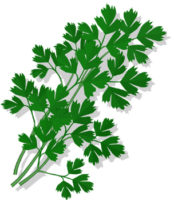 July 17, 2017
July 17, 2017
Days Until. . .
Satchmo Summer Fest 18
Restaurant Anniversaries
This is the birthday, in 1979, of Mr. B's Bistro. Its opening was a turning point in many ways. It was the first new restaurant opened by the Commander's Palace side of the Brennan family after it split with Brennan's on Royal Street in 1973. In the intervening years, they closed four of their six restaurants. Mr. B's represented the rise of the next generation of Brennans, who opened one restaurant after another thereafter. More important, Mr. B's was the archetype for the gourmet Creole bistro--a new kind of restaurant at the time. It was widely imitated in the next decade, and restaurants like Mr. B's now dominate the dining scene. They serve great food of high intrinsic quality, but in casual dining rooms devoid of pretense and ceremony. It was a perfect match to the tastes of baby Boomers, who were coming into their own in 1979. Mr. B's was the last major restaurant to return to action after the hurricane. Its opening brought the number of real restaurants in town to 809--the number we had before the storm. It's a keystone in the New Orleans restaurant scene. Crab cakes, gumbo ya-ya, barbecue shrimp, bread pudding--all are the best in town.
Annals Of Dining Comfort
This is one of several dates that could be called the anniversary of air conditioning. In 1901 on this date, Willis Carrier started up his air conditioner in a printing plant in Brooklyn. The owners of the place were trying to cool the equipment, not the people running it--although the benefits they enjoyed from the comfortable air were so great that air conditioning spread. First to public buildings, then to homes. Movie theatres found they could attract much larger crowds if they offered respite from the summer as well as entertainment. In climates like ours it was a godsend. Think about what it must have been like to dine in Antoine's or Galatoire's before air conditioning on a day like today.
Today's Flavor
It is National Parsley Day. As mild a flavor as it possesses, parsley adds something. Its mild acidity (ounce for ounce, parsley actually has more vitamin C than oranges do), the fresh, green flavor, the color and texture. . . all contribute that last two percent to a dish.
 Parsley is more than a garnish, though. The classic recipe for oysters Rockefeller--the one that doesn't use spinach--employs parsley by the bunch. So does the lenten Creole soup-stew, gumbo z'herbes. In Lebanese cooking, parsley is used by the fistful in dishes like tabbouleh.
If you have to cook with dried herbs, or if you have a dish that leans toward gloppiness (like crawfish etouffee), or if you have some leftovers you'd like to enjoy again. . . try adding fresh parsley. It brings the flavor and texture right up without altering the flavor of the dish deeply.
Finally, there is the matter that parsley refreshes the breath. That's a minor point, but it has been used to explain the parsley sprig that comes on many plates (or used to.)
Always pick the leaves off the parsley stems before cutting. It's tedious, but the leaves have a better flavor than the stems. (Save the stems, though--they're a great addition to the stock pot.) Chop the leaves finely, using a sharp chef's knife. A food processor beats it up too much. Don't chop it much in advance. Parsley loses its fresh charm if it sits out for more than an hour. Forget freezing.
Two other members of the parsley family are out there, and may cause confusion. Cilantro is now almost universally available in supermarkets, and usually displayed right next to the flat-leaf and curly parsley. The leaves look different, but not dramatically. To be certain you have what you want, pick a leaf, break it, and smell it. The salsa-like aroma of cilantro is unmistakable. The other, much less common parsley variant is chervil, whose leaves are smaller than regular parsley. It has a subtle anise-like aroma and flavor.
Parsley is more than a garnish, though. The classic recipe for oysters Rockefeller--the one that doesn't use spinach--employs parsley by the bunch. So does the lenten Creole soup-stew, gumbo z'herbes. In Lebanese cooking, parsley is used by the fistful in dishes like tabbouleh.
If you have to cook with dried herbs, or if you have a dish that leans toward gloppiness (like crawfish etouffee), or if you have some leftovers you'd like to enjoy again. . . try adding fresh parsley. It brings the flavor and texture right up without altering the flavor of the dish deeply.
Finally, there is the matter that parsley refreshes the breath. That's a minor point, but it has been used to explain the parsley sprig that comes on many plates (or used to.)
Always pick the leaves off the parsley stems before cutting. It's tedious, but the leaves have a better flavor than the stems. (Save the stems, though--they're a great addition to the stock pot.) Chop the leaves finely, using a sharp chef's knife. A food processor beats it up too much. Don't chop it much in advance. Parsley loses its fresh charm if it sits out for more than an hour. Forget freezing.
Two other members of the parsley family are out there, and may cause confusion. Cilantro is now almost universally available in supermarkets, and usually displayed right next to the flat-leaf and curly parsley. The leaves look different, but not dramatically. To be certain you have what you want, pick a leaf, break it, and smell it. The salsa-like aroma of cilantro is unmistakable. The other, much less common parsley variant is chervil, whose leaves are smaller than regular parsley. It has a subtle anise-like aroma and flavor.
Edible Dictionary
suppli al telefono, Italian, n.--It translates literally as "telephone wires," a name that will puzzle anyone who's seen but not eaten the dish. These are balls of rice about the size of a golf ball, held together with eggs and sometimes with just enough tomato sauce to make the rice a pale orange. In the center is a cube of mozzarella cheese. The balls are rolled in bread crumbs and fried long enough that the interior is very hot. When you cut into it with a fork and lift the bite to your mouth, festoons of cheese stretch between the ball and the fork. These are supposed to resemble telephone wires. The dish is a common appetizer around Italy, especially in Rome.
Gourmet Gazetteer
Orange, Texas, population 18,700, is the easternmost large town in Texas, right on the Sabine River and the Louisiana state line. That gives it the trivial distinction of having the highest-numbered Interstate exit and mile marker anywhere. It's 880 miles on the I-10 to El Paso. Orange was founded as a port town on the Gulf of Mexico in 1836, and that's how it's always made its living. Oranges may be grown there, but not on a large scale; the land is low and marshy in the area. Except for the many fast-food places on the I-10, Orange's cuisine has been thoroughly converted to Cajun. The best restaurant in town (sez Texas Monthly, a good source) is Robert's Meat Market And Steakhouse, 3720 W. Park Ave., 409-883-0979.
The Lunch Counter
F.W. Woolworth Co. announced today in 1997 that it would close all the remaining Woolworth's five-and-dime stores in America, after over a century in business. Although Woolworth's was the same nationwide, we always considered it a part of the New Orleans scene. The two stores on Canal Street (three blocks apart) were on everybody's downtown shopping itinerary in the days when everybody shopped on Canal Street. Who doesn't remember going there for breakfast or for a grilled cheese sandwich with crinkle-cut fries? Other Woolworth's around town includes two on Magazine Street and one on Oak Street, all of which were anchors in their neighborhoods. Woolworth is still around, under different names--Foot Locker being the most prominent.
Restaurant Namesakes
King George V of England changed his surname today in 1917. He relinquished his German titles (England was at war with the Germans at the time), and proclaimed that his heirs would no longer be called the House of Saxe-Coburg-Gotha, but the House of Windsor. It is this name that landed on the Windsor Court Hotel--often lauded in its twenty-five years as the finest hotel in New Orleans.
Fromage Du Jour
Banon (French), [bah-NONH], n.--One of the soft white cheeses made since ancient times in what is now the southeastern French region of Provence. Banon comes from the town of the same name. It's usually made with unpasteurized goat's milk, although sometimes sheep's milk is also used. After being made into small wheels, it gains a thin, snowy layer of mold. Then it's distinctively wrapped in chestnut leaves and tied with raffia. In its fresh form, it's spreadable and tangy. As it gets older--especially if it's been aged in a jar with vinegar and eau-de-vie, a process that can go on for years--it becomes very assertive and harder.
Music To Watch Movies By
The first record released by the Supremes came out today in 1961. It was called Buttered Popcorn. Has anyone ever heard it?
Food And Drink Namesakes
The British satirical magazine Punch published its first issue today in 1841. . . Canadian actress-turned-politician Andrée Champagne popped her cork today in 1939. . . Movie actor Bill Sage leafed out today in 1962.
Words To Eat By
"Approaching the stove, she would don a voluminous apron, toss some meat on a platter, empty a skillet of its perfectly cooked a point vegetables, sprinkle a handful of chopped parsley over all, and then, like a proficient striptease artist, remove the apron, allowing it to fall to the floor with a shake of her hips."--Bert Greene.
Words To Drink By
Old friends are the best! Age appears to be best in four things; old wood best to burn, old wine to drink, old friends to trust, and old authors to read.--Francis Bacon.